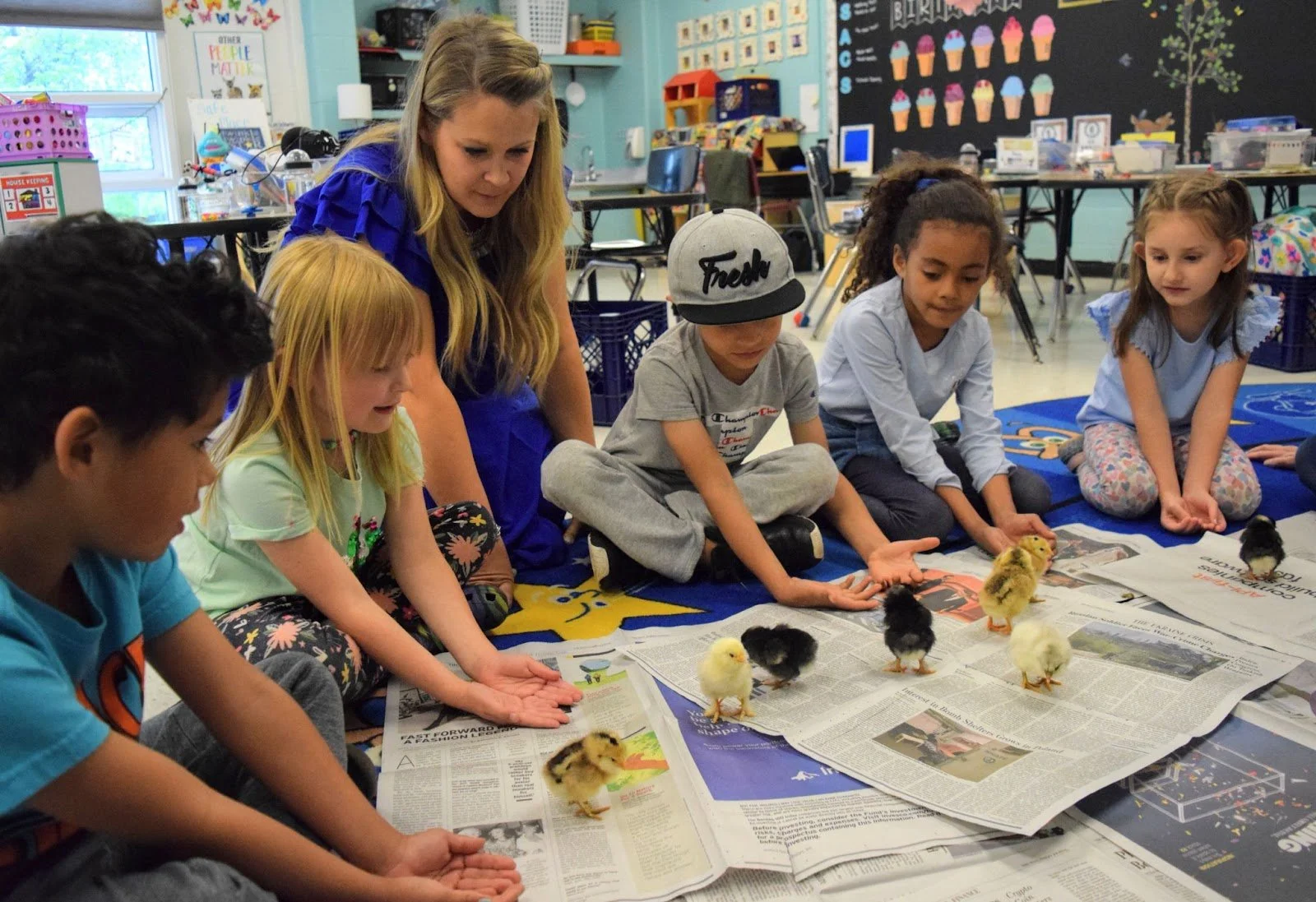Maple Run Unified School District
At The Creative Discourse Group, we're committed to catalyzing positive change within school districts, fostering inclusivity, and addressing systemic issues. Our partnership with Maple Run Unified School District (MRUSD) in Franklin County, Vermont exemplifies how collaborative efforts can set the stage for lasting impact in the education sector.
Empowering Communities, One District at a Time
MRUSD, established in 2016, serves K-12 students from Fairfield, St. Albans City, and St. Albans town. The COVID-19 pandemic created serious challenges for MRUSD, testing the resilience of staff and students and exacerbating existing disparities. It became apparent that a comprehensive approach was needed to ensure equitable access to essentials like food, online learning, and social and emotional support. MRUSD also faced the pressing issue of addressing bias towards LGBTQ+ students, neurodivergent students and students with disabilities, students from low-income families, and students of color, especially Black students. Our mission with MRUSD was clear: to support their efforts to build a strong school community that works for all students, staff, and families.
“Working with TCDG has made our process of developing district goals stronger and more inclusive. We were able to hear the voices of those traditionally left out, and their voices will make our work stronger and more impactful in the end.” -Bill Kimball, Superintendent
Our Approach: Comprehensive and Collaborative
At The Creative Discourse Group, we believe in a holistic approach to change. Following the pandemic, MRUSD started at the individual student and classroom level by providing training in restorative practices to foster a community that prioritized dignity and care. In addition, MRUSD increased staffing to provide much-needed social and emotional support to students.
On a broader scale, The Creative Discourse Group initiated a partnership with MRUSD in 2022, embarking on various district-level projects. Our focus was to address systemic racism and inequities in MRUSD's culture, practices, and policies, to ensure that all students have access to the district's offerings. Our efforts included:
Community Engagement: Through a series of listening sessions and a community summit, we uncovered five priorities shared by community members, students and educators.
Professional Development: We provided capacity-building opportunities for school leaders and staff, equipping them with tools and strategies to effectively tackle bias, racism, and inequities.
Individual Coaching: We worked closely with school leaders, offering tailored coaching sessions to enhance their equity leadership skills.
Challenges: Navigating a Diverse Community
The larger MRUSD community of students, employees, families, and neighbors (like many communities across the nation) is characterized by a diverse and increasingly polarized range of political perspectives, particularly regarding efforts to address racism and build equitable and inclusive education systems. In response to this challenge, we began our work with a series of listening sessions to create a platform for community members to share their experiences with MRUSD. These conversations unveiled a surprising consensus:
The term "equity" had become politicized, but even individuals who held concerns about equity initiatives still supported policies ensuring that all students have access to essential resources.
Individuals with diverse views prioritized the district's endeavor to become more rigorous in its academic offerings, holding high expectations for all students without bias (based on factors such as race, ethnicity, sexual orientation, gender identity, neurodivergence, disability, or income).
In a politically diverse community, an open approach to engagement created the opportunity to hear a range of voices and uncover shared values , giving MRUSD a clear path forward.
There are also challenges within the school district that must be navigated. The same politicization of equity work in the community also exists among MRUSD staff. In addition, the superintendent of this fairly new district is working to shift away from building-based silos to a more collaborative and team oriented institution where school leaders can share best practices across schools and work effectively towards a cohesive vision for student success.
Our Impact: Building Awareness and Fostering Collaboration
The impact of our collaboration with MRUSD is becoming increasingly evident:
We have facilitated deep conversations on bias, racism, and inequities within district systems. These conversations have created opportunities for school leaders to work through disagreements, build stronger relationships, and learn about effective strategies to address these issues.
Our community engagement initiatives have built bridges between the school district and the community. We have ensured that the school district's work is shaped by community voices, leading to a unanimous approval by the school board of core goals that align with community priorities.
Our inclusive strategic planning process is enabling collaborative efforts between school leaders, students, and community members to address the district's newly adopted goals.
Join Us in Creating Transformative Change
While there is still much work to be done, our collaboration with MRUSD stands as a testament to the power of collective action in the education sector. We invite you to join us in our mission to foster inclusive, equitable education for all. Let's work together to transform school districts and build communities that cater to the needs of every student, staff member, and family. Reach out to The Creative Discourse Group and be a part of this transformative journey. Together, we can help our education systems make shifts in their policies, practices and culture to better serve the needs of all of our children.

